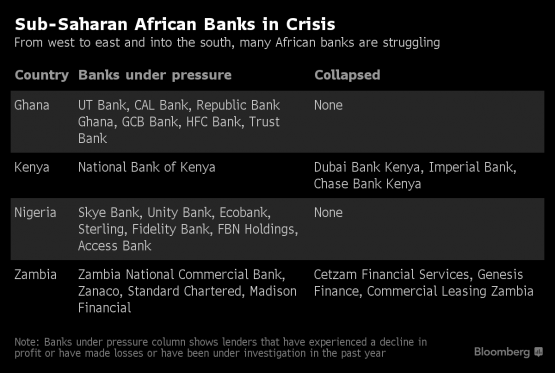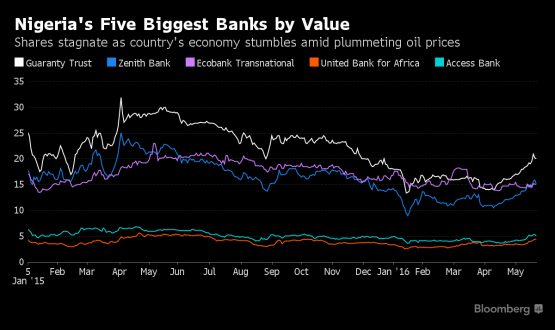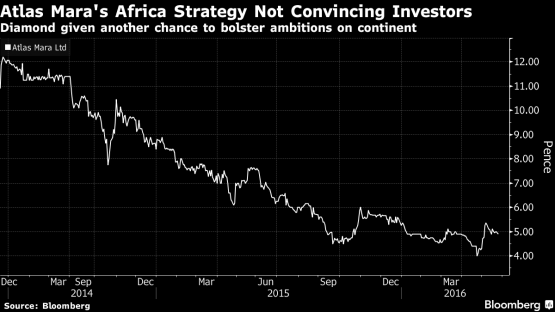by Michael Lalor 2016-05-24 05:38:34.0
SOME recent reports suggest investors have lost confidence in Africa as an investment destination. This appears to be largely as a result of the recent economic slowdown in some of the key African economies.
Indeed, the International Monetary Fund (IMF) recently revised its projected growth rate for sub-Saharan Africa for 2016 down again to 3% — a year ago it was projecting 6.1% growth for 2016. This means that the region will experience its lowest growth rate in 15 years.
The reality, too, is that economic growth across the region is likely to remain slower over the next few years. The main reasons for a relative slowdown are not unique to Africa and are the same as those weighing down the global economy: a general slowdown in emerging market economies, and, in particular, the rebalancing of China's economy; ongoing stagnation in most developed economies; lower commodity prices and higher borrowing costs.
A key word here, however, is "relative". Although growth in the region has slowed, sub-Saharan Africa will remain the second-fastest-growing region in the world for the foreseeable future, after emerging Asia. In other words, slower growth does not equate to no growth, and certainly does not signal a cyclical decline in most African economies.
Our view remains that Africa's rise over the past 15 years is real; what we have witnessed has been a structural evolution rather than cyclical change that has marked previous boom and bust periods in Africa's post-colonial history. Although exports from many African economies remain commodity-orientated, private consumption has become a key growth driver, as has investment in infrastructure. The services sector constitutes an increasingly significant proportion of most African economies, and, while still small, the role of (and investment into) manufacturing is increasing.
This process of structural evolution — as with anywhere else in history — is likely to take decades. However, most African economies are in a fundamentally better place today than they were 15 to 20 years ago, and overall growth is likely to remain robust relative to most other regions over the next decade. Structural evolution will continue, and, when conditions improve globally, much of Africa will be well positioned to accelerate the growth momentum once again.
But will the relative slowdown in many African economies negatively effect investment? Some recent reports suggest that investors have lost confidence in Africa as an investment destination. That view does not align with our own research and experience.
Despite greater levels of uncertainty, we do not anticipate that this will have a fundamental effect on the number, value or quality of foreign direct investment (FDI) projects in Africa. There are two key factors supporting our view:
• A consistent theme of our Africa attractiveness surveys since 2010 has been the wide perception gap between investors who already have operations in Africa and those who do not. Investors already doing business in Africa, who understand the real risks and opportunities, remain overwhelmingly positive about Africa's prospects and potential. Conversely, those not doing business in Africa have remained consistently and overwhelmingly negative. If anything, we would expect this perception gap to widen over the next few years (and to feed the misguided view that investors are losing confidence in Africa).
• Our analysis of FDI focuses specifically on greenfield and significant brownfield projects, which are, by their nature, focused on the long term. These are not investors chasing a quick profit; investments are generally initiated by people already doing business in Africa and who understand the business environment; they are generally investing in the longer-term potential of many African markets, and will not be swayed by shorter-term economic vagaries.
Supporting our view on Africa's longer-term investment outlook, FDI flows to Africa remained robust in 2015:
• FDI project numbers increased 7% year on year;
• The capital value of those projects was down year on year — from $88.5b in 2014 to $71.3b in 2015 — but this was still higher than the 2010 to 2014 average of $68bn.
• Similarly, jobs created as a result of these FDI projects were down year on year, but were also ahead of the average for 2010 to 2014.
Significantly, the year-on-year increase in FDI project numbers in Africa in 2015 occurred in a context in which the total number of FDI projects globally dropped 5%. In fact, Africa was one of only two regions in the world in which there was growth in the number of FDI projects over the past year.
However, from an investment perspective, the next few years may be challenging. Not because the opportunities are no longer there, but rather because these opportunities are likely to be more uneven than they have been over the past five years. Given the scale, complexity and fragmented nature of the African continent, making well informed choices about which markets to enter when, and via which mode, will be more critical than ever.
At the same time, the emphasis of most organisations with a growth strategy in Africa is likely to shift from rapid expansion to consolidation and optimisation of African operations. This should not, however, be read as a signal that investors are losing confidence in African markets; it is instead the next logical phase of growth for the many investors that are committed to and continue to believe in Africa's longer term prospects.
• Lalor is lead partner at EY's Africa business centre

Picture: ISTOCK
SOME recent reports suggest investors have lost confidence in Africa as an investment destination. This appears to be largely as a result of the recent economic slowdown in some of the key African economies.
Indeed, the International Monetary Fund (IMF) recently revised its projected growth rate for sub-Saharan Africa for 2016 down again to 3% — a year ago it was projecting 6.1% growth for 2016. This means that the region will experience its lowest growth rate in 15 years.
The reality, too, is that economic growth across the region is likely to remain slower over the next few years. The main reasons for a relative slowdown are not unique to Africa and are the same as those weighing down the global economy: a general slowdown in emerging market economies, and, in particular, the rebalancing of China's economy; ongoing stagnation in most developed economies; lower commodity prices and higher borrowing costs.
A key word here, however, is "relative". Although growth in the region has slowed, sub-Saharan Africa will remain the second-fastest-growing region in the world for the foreseeable future, after emerging Asia. In other words, slower growth does not equate to no growth, and certainly does not signal a cyclical decline in most African economies.
Our view remains that Africa's rise over the past 15 years is real; what we have witnessed has been a structural evolution rather than cyclical change that has marked previous boom and bust periods in Africa's post-colonial history. Although exports from many African economies remain commodity-orientated, private consumption has become a key growth driver, as has investment in infrastructure. The services sector constitutes an increasingly significant proportion of most African economies, and, while still small, the role of (and investment into) manufacturing is increasing.
This process of structural evolution — as with anywhere else in history — is likely to take decades. However, most African economies are in a fundamentally better place today than they were 15 to 20 years ago, and overall growth is likely to remain robust relative to most other regions over the next decade. Structural evolution will continue, and, when conditions improve globally, much of Africa will be well positioned to accelerate the growth momentum once again.
But will the relative slowdown in many African economies negatively effect investment? Some recent reports suggest that investors have lost confidence in Africa as an investment destination. That view does not align with our own research and experience.
Despite greater levels of uncertainty, we do not anticipate that this will have a fundamental effect on the number, value or quality of foreign direct investment (FDI) projects in Africa. There are two key factors supporting our view:
• A consistent theme of our Africa attractiveness surveys since 2010 has been the wide perception gap between investors who already have operations in Africa and those who do not. Investors already doing business in Africa, who understand the real risks and opportunities, remain overwhelmingly positive about Africa's prospects and potential. Conversely, those not doing business in Africa have remained consistently and overwhelmingly negative. If anything, we would expect this perception gap to widen over the next few years (and to feed the misguided view that investors are losing confidence in Africa).
• Our analysis of FDI focuses specifically on greenfield and significant brownfield projects, which are, by their nature, focused on the long term. These are not investors chasing a quick profit; investments are generally initiated by people already doing business in Africa and who understand the business environment; they are generally investing in the longer-term potential of many African markets, and will not be swayed by shorter-term economic vagaries.
Supporting our view on Africa's longer-term investment outlook, FDI flows to Africa remained robust in 2015:
• FDI project numbers increased 7% year on year;
• The capital value of those projects was down year on year — from $88.5b in 2014 to $71.3b in 2015 — but this was still higher than the 2010 to 2014 average of $68bn.
• Similarly, jobs created as a result of these FDI projects were down year on year, but were also ahead of the average for 2010 to 2014.
Significantly, the year-on-year increase in FDI project numbers in Africa in 2015 occurred in a context in which the total number of FDI projects globally dropped 5%. In fact, Africa was one of only two regions in the world in which there was growth in the number of FDI projects over the past year.
However, from an investment perspective, the next few years may be challenging. Not because the opportunities are no longer there, but rather because these opportunities are likely to be more uneven than they have been over the past five years. Given the scale, complexity and fragmented nature of the African continent, making well informed choices about which markets to enter when, and via which mode, will be more critical than ever.
At the same time, the emphasis of most organisations with a growth strategy in Africa is likely to shift from rapid expansion to consolidation and optimisation of African operations. This should not, however, be read as a signal that investors are losing confidence in African markets; it is instead the next logical phase of growth for the many investors that are committed to and continue to believe in Africa's longer term prospects.
• Lalor is lead partner at EY's Africa business centre
Source:
Relatively speaking, African growth should be robust over the next decade
 Lt. Gen. Joseph Henry Smith
Lt. Gen. Joseph Henry Smith




